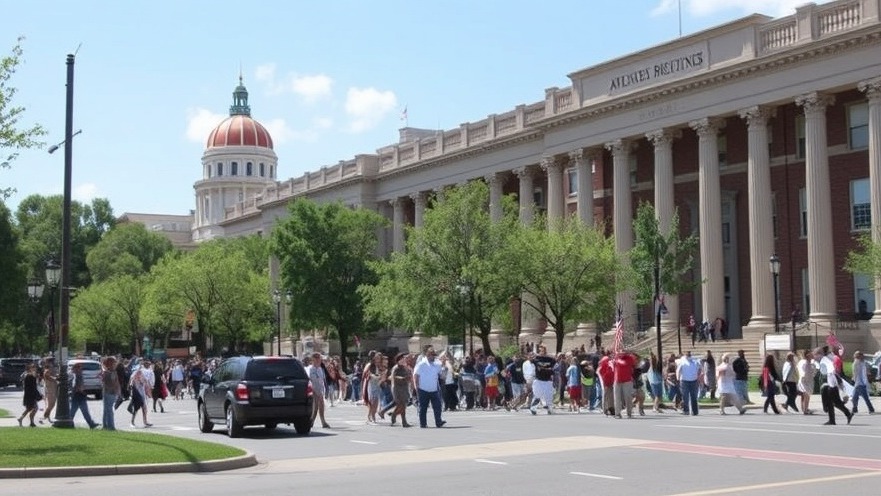
The Court's Decision: An Intersection of Law and Mortality
Amber Waterman's case highlights not just the grisly details of her actions, but the legal implications of double jeopardy in the American justice system. With the Arkansas Supreme Court scheduled to deliberate on whether she can face the death penalty while already serving a life sentence federally, the stakes are high. This situation serves as a potent reminder of how intertwining judicial decisions can shape lives and communities far beyond the courtroom.
In the recent video, 'Latest News | Arkansas Supreme Court to hear Waterman case', the discussion dives into significant legal issues surrounding the Waterman case and its implications for Arkansas farming, prompting a deeper analysis of its community effects.
Local Impact: Farming vs. Conservation
The anticipated Arkansas legislation to lift the moratorium on farming along the Buffalo River is raising eyebrows among local environmentalists. Advocates like Kip Kruger are concerned that the newfound agriculture freedom could jeopardize the river's ecosystem. As America's first national river, the Buffalo holds cultural and ecological significance, emphasizing the ongoing debate between agricultural development and environmental preservation. The challenge lies in finding a balance that serves both the local farming community and the pristine waters cherished by so many.
Future Predictions: What Lies Ahead for Arkansas?
As lawmakers gather to discuss issues ranging from the Waterman case to farm bills affecting the Buffalo River, the outcomes could set significant precedents for Arkansas. If the Supreme Court rules in favor of the prosecution, it could embolden other states to reconsider similar double jeopardy statutes, impacting how violent crimes are prosecuted nationwide. Furthermore, should the farming bill pass, it could lead to an influx of development along the Buffalo, affecting not just local water quality but also the state’s tourism appeal.
The Community's Reaction: Voices from the Heart
The intersection of these stories underlines the profound emotional impacts on communities. For families who value the natural beauty of the Buffalo River, facing potential pollution strikes at the heart of their cultural identity. Meanwhile, the families affected by Amber Waterman's heinous actions continue to grapple with their profound loss. Understanding these narratives reminds us that legislation and legal rulings resonate deeply through human lives, elevating the necessity for clear dialogue amongst Arkansas citizens.
Advice for Local Residents: Stay Informed and Engaged
As these legal battles unfold, Arkansas residents must stay informed about how such legislation can affect their daily lives and the environment. Attending town hall meetings, engaging with local activists, and voicing opinions on social media are essential methods of participation that residents can adopt. Awareness is key—by engaging in discussions around these vital issues, communities can work together to advocate for solutions that honor both public safety and environmental integrity.
Keeping abreast of these developments not only helps safeguard resources like the Buffalo River but also directly contributes to a more informed community civic engagement. By participating in these conversations, you strengthen the fabric of your local governance and environmental stewardship.



Write A Comment